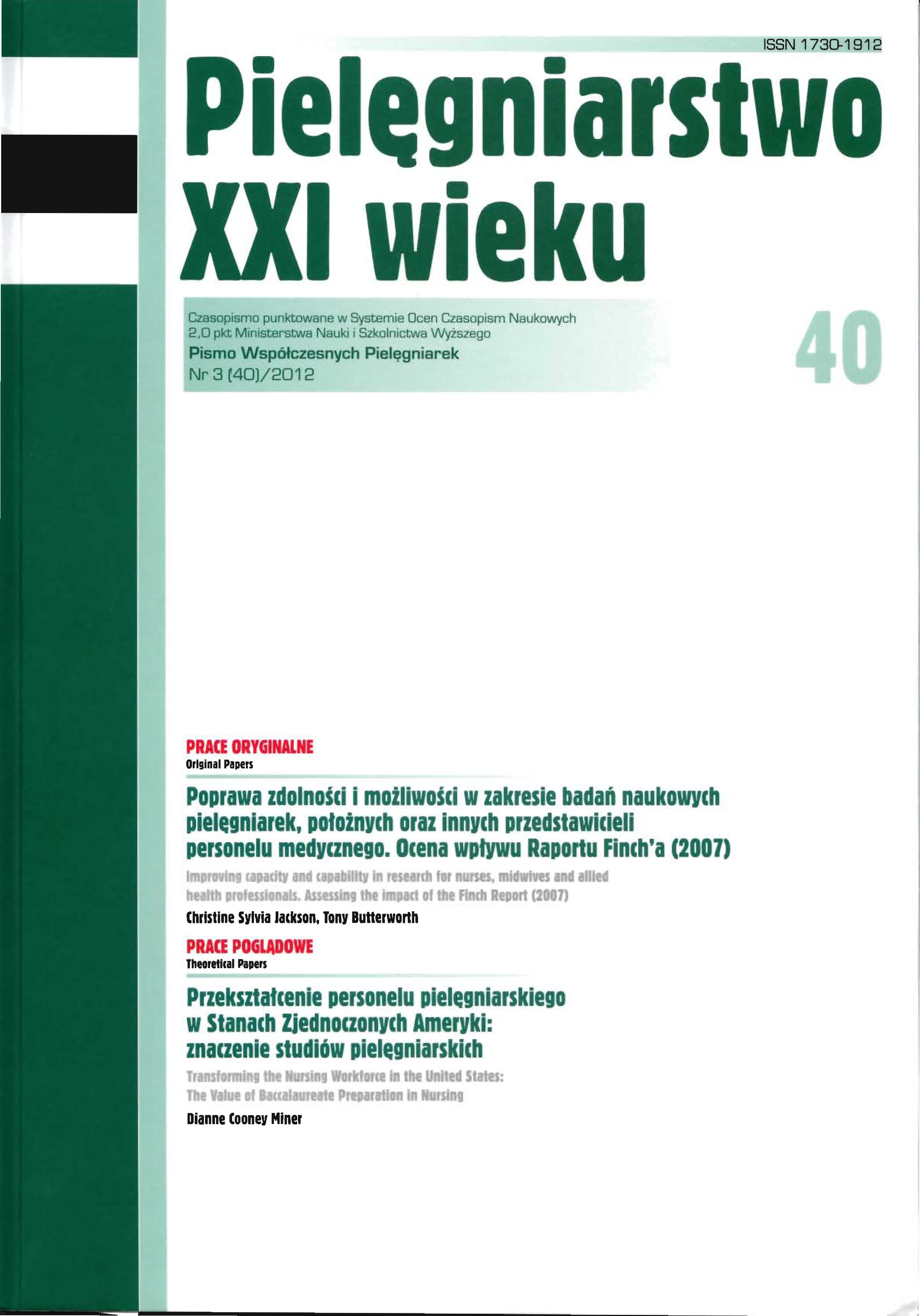Innovations and challenges in the education of nurses for clinical practice – synonym of good practice
Keywords:
nursing, clinical practice, health services, patientsAbstract
INNOVATIONS AND CHALLENGES IN THE EDUCATION OF NURSES FOR CLINICAL PRACTICE – SYNONYM OF GOOD PRACTICE
Introduction. Nursing in Serbia is moving towards alignment with European integration, also burdened with many problems of transition, taking the responsibility of identifying their own needs of the profession through the challenges and opportunities for further improvement, particularly in clinical nursing practice. Enhancing research capacity and the profession, as well as patient satisfaction with the services provided, is a synonym of good practice, which we aspire.
Aim. Defining the level of education of nurses in the clinical practice of the health care system. This should contribute to the regulation system of competence of nurses, improvement of the quality of nursing care and patient satisfaction with health services.
Material and methods. A quantitative methodology with the original questionnaires for patients: HCAHPS (Hospital Consumer Assessment of Healthcare Providers and Systems) and nurses: Care Coordination Survey (Weinberg, Cooney-Miner, Perloff, 2006). For data analysis we have used descriptive statistical methods; data were analyzed by SPSS 16.0.
Results. The study included 212 nurses and 205 patients from four clinics in Belgrade-surgical and internal medicine and general hospital from Smederevo. Results of the questionnaire applied to a sample of nurses show the dominance of female subjects (95%). Most surveyed nurses deal with nursing care (76.9%). Concerning educational level - most of nurses have secondary school diplomas (70.2%), while higher vocational education is with 26.4% and faculty - 2.5% of respondents. The average number of years of service is 14. Working and being educated at the same time is reported by 29.8% of respondents. In the decision-making process there are involved 32.2% of them. Only 28.1% of them have enough time for patients and their needs. Almost half of respondents believe that they do a good job (50.4%) and see themselves always as the professionals (63.6%). The continuously educated ones account for 65.3%. Doctors and nurses have good working relationships (65.3%) and evaluate patient care as very good (43.8%). Job satisfaction is confirmed by 56.2% of respondents. A high statistic relative importance with nursing education and satisfaction is found (p=0.014). Patients evaluated hospitality and respect by the nurses in 89.2%, by the doctors - in 83.2%; 73.6% of patients always got a clear explanation about the effect of the drug and very highly recommend the hospital (67%). The presented results are preliminary in character.
Conclusions. The area of the organization and work processes, skills, expertise and position in the team of nurses, as well as in decision-making process, cannot be analyzed without the research. This study shows satisfying results in the aspect of self-awareness of nurses and personal responsibility for their status and professional development, which contributes to patients' satisfaction with health services, and therefore the development of good clinical practice.
References
1. Kekus D. Elements of a strategic approach in the development of a career and teaching practical work and research in nursing. 5th international scientific conference “ Developing a focus for nursing through better Understanding and implementation of safety, productivity and quality improvement”. Proceedings. Belgrade, 2011. Avaliable from: http://www.lincoln.ac.uk/ccawi/publications/ZbornikPredavanja%20za%20Milijanu%20M.pdf
2. Filipović V, Kekus D.: Menadžment funkcije u sestrinstvu, Materijal - Seminar kontinuirane edukacije, KC Srbije. Beograd, 2010.
3. Zakon o visokom obrazovanju Republike Srbije. Službeni Glasnik Republike Srbije 12/76/2005/01.
4. Ministry Of Education And Sport Republic of Serbia. Bologna Process Serbian National Report: 2005-2007. Available from: http://www.eees.es/pdf/paises/SERBIA/National_Report_Serbia2007.pdf
5. Commission for Accreditation and Quality Assurance Republicof Serbia. Available from: www.kapk.org.
6. Fleming V, Holmes A. Basic nursing and midwifery education programmes in Europe. A report to the World Health Organization Regional Office for Europe. 2005. Available from: http://www.euro.who.int/__data/assets/pdf_file/0013/102235/E86582.pdf
7. Matijevic M. Obrazovanje, praksa i istraživanje-put ka promenama, IV kongres “Sestrinstvo”, Beograd, 2010.
Downloads
Published
Issue
Section
License
Copyright (c) 2012 Divna Kekus, Milijana Matijevic, Zvonko Dimoski, Dragana Terzic Markovic, Ivana Nesic, Majda Pajnkihar (Autor)

This work is licensed under a Creative Commons Attribution 4.0 International License.




